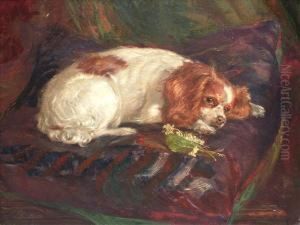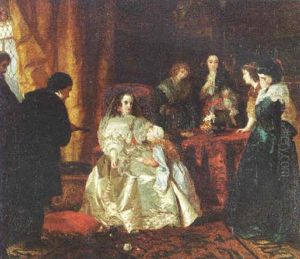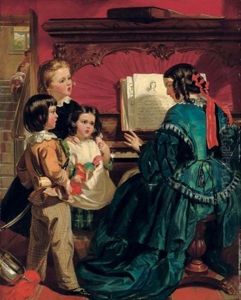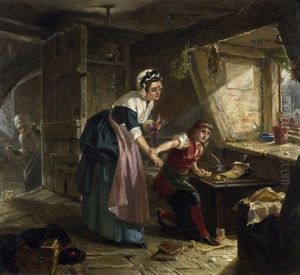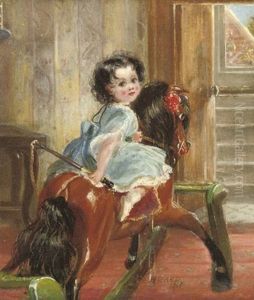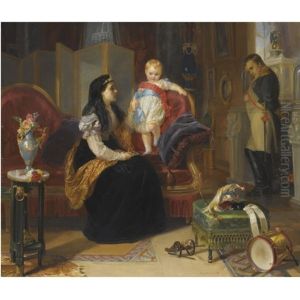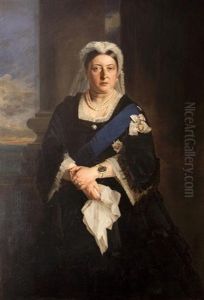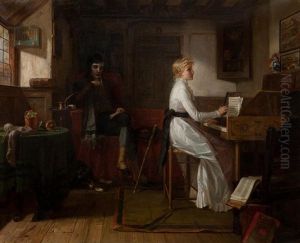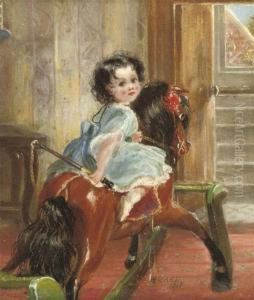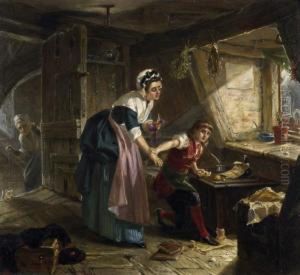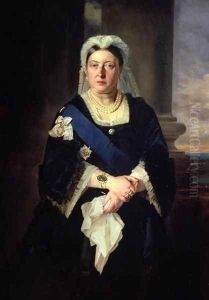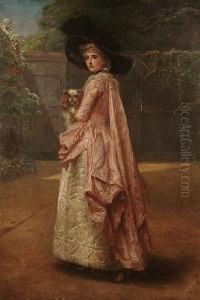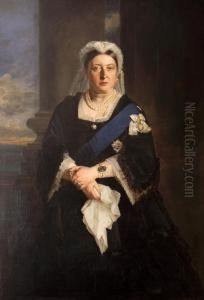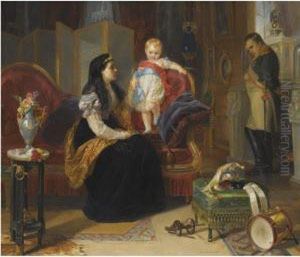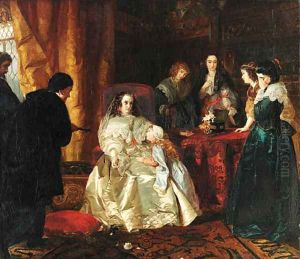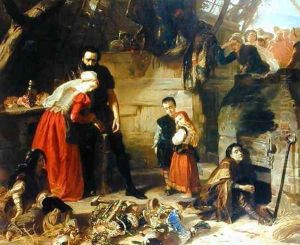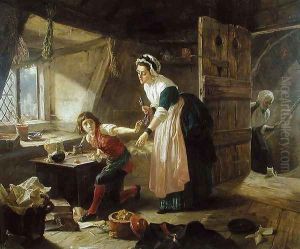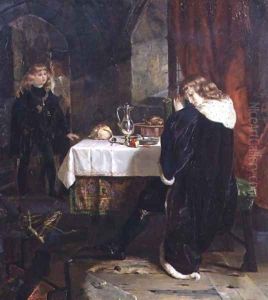Henrietta Mary Ward Paintings
Henrietta Mary Ward was a prominent British artist born in 1832, known for her historical and genre paintings during the Victorian era. She was born into an artistic family; her grandfather was James Ward, a renowned animal painter and Royal Academician, and her father, George Raphael Ward, was an engraver and painter. This environment nurtured her talents and interests in the arts from a young age. Despite the societal constraints on women in the arts during the 19th century, Henrietta pursued her passion with determination, becoming a significant figure in the British art scene.
Henrietta's artistic career began to flourish after she became a student of George Hayter, a notable painter who also taught Queen Victoria. Her marriage to Edward Matthew Ward, a successful historical genre artist, further integrated her into the core of the British art world. Despite her marriage and the responsibilities of raising eight children, Henrietta continued to develop her career, exhibiting her works at prestigious institutions such as the Royal Academy and the British Institution.
Her paintings often depicted scenes from English and French history with a focus on accurately representing the period's costumes and settings. One of her most famous works, 'The Flight of the Duchess', exemplifies her meticulous approach to historical accuracy and her skill in narrative composition. Throughout her career, Henrietta advocated for the recognition and education of female artists, challenging the gender norms of her time.
Henrietta's contributions to art were not only limited to her paintings. She was also an author, writing about art education and the role of women in the arts. Her writings and paintings reflect her belief in the importance of historical knowledge and the power of art to educate and inspire. Even after the death of her husband in 1879, Ward continued to paint and exhibit her works, maintaining a presence in the British art scene until the early 20th century.
Henrietta Mary Ward passed away in 1924, leaving behind a legacy as one of the Victorian era's most influential and pioneering female artists. Her work and life continue to inspire discussions on the contributions of women to the arts and the challenges they faced during the 19th century. Her paintings are preserved in various collections, serving as a testament to her skill, perseverance, and the role she played in shaping the course of British art history.

